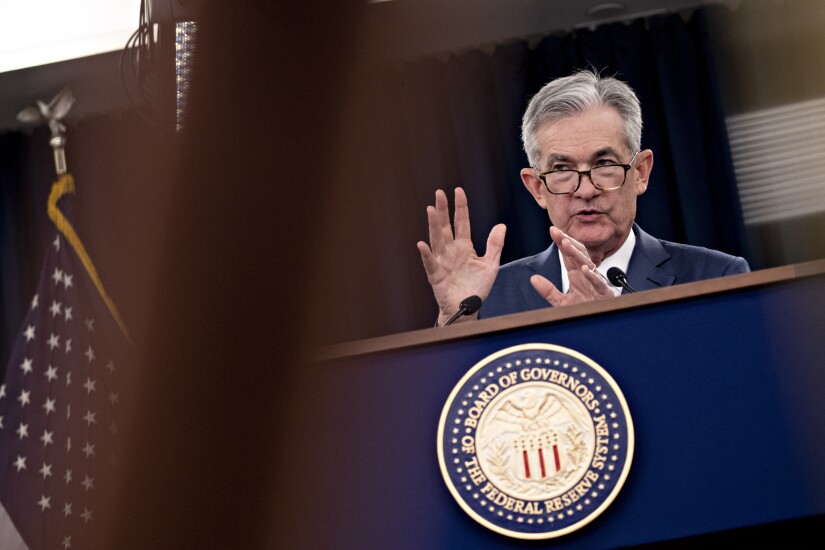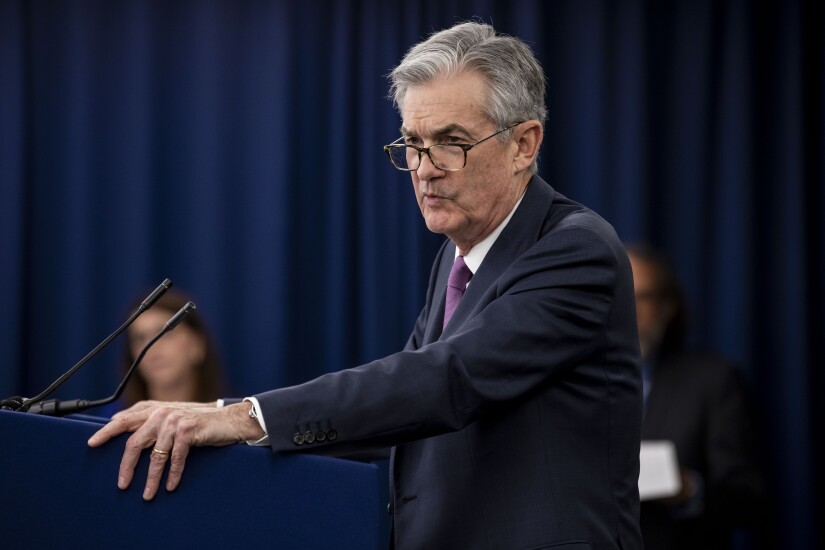
During the past six weeks, Federal Reserve officials have found many ways of saying the same thing: They are waiting to see how sweeping trade policy changes affect the U.S. economy before adjusting monetary policy. On Wednesday, Fed Chair Jerome Powell will have to come up with a few more.
The Federal Open Market Committee is broadly expected to hold its benchmark interest rate steady between 4.25% and 4.5%. But during his post-meeting press conference, Powell will be tasked with explaining that decision in the context of recent economic and political developments.
Shortly after the Fed's last monetary policy meeting in March, President Donald Trump rolled out a bevy of new tariffs, upping the import tax on virtually all goods coming into the country and escalating the U.S.' trade war with China. The announcement triggered
Those fears spiked again after the president ramped up his pressure campaign on the Fed to cut rates, even insinuating that he might
Last month,
"It's just too soon to say what the appropriate monetary policy response to these new policies will be," Powell said
Trump has since
Yet, the president continues to call for cuts, arguing that inflation is waning and current interest rates are weighing down economic economic activity. Indeed, recent government data releases show inflation
In light of this mix of economic indicators, financial analysts expect Powell to say as little as possible in his press conference.
In a note issued Wednesday morning, Thomas Simons, chief economist for Jeffries, wrote that he expects the committee to acknowledge slower growth in its policy statement and for Powell to affirm both the improved economic figures as well as the heightened uncertainty of the current moment. Beyond that, Simons said he expects Powell to avoid being pinned down on specifics.
"A press conference from Powell will likely feature a host of questions about hypothetical outcomes on trade/tariffs and/or fiscal policy issues that he cannot and will not comment on for a variety of reasons," he wrote. "No matter how comprehensive the question is contextualized, these answers are lose-lose propositions for Powell."







